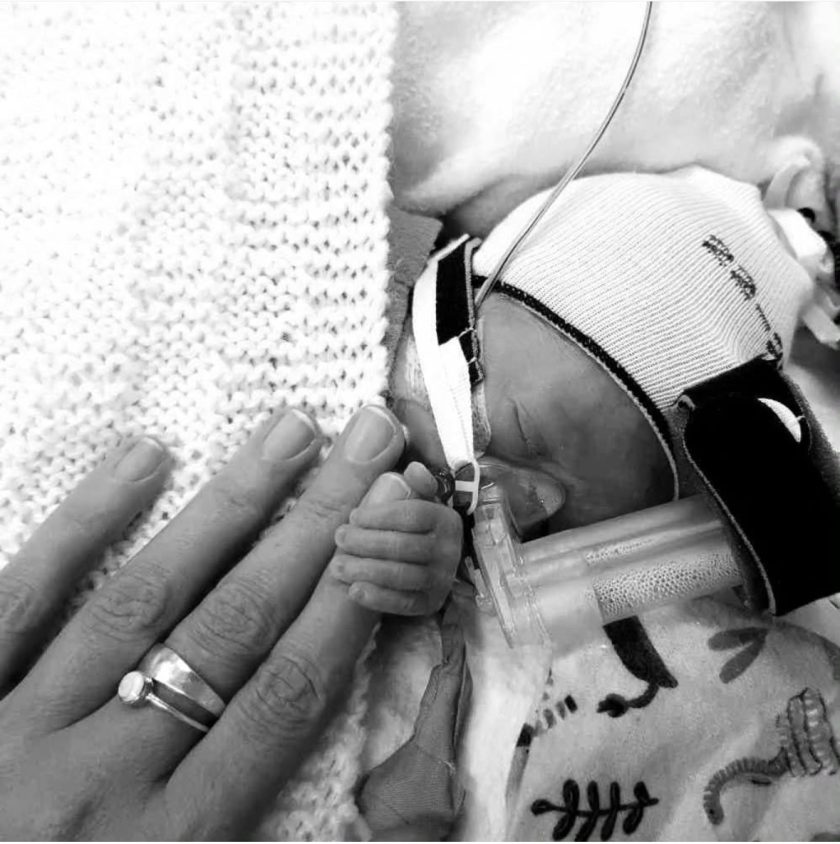
When Your Baby’s Journey Begins in the NICU…
You may have been given the heads up, or it be thrust upon you without having a choice or any say in the matter, but somehow your baby (or babies!) have ended up here, within the Neonatal Intensive Care Unit (NICU) or Special Care Baby Unit (SCBU). It can be an overwhelming place to begin with- screens, alarms, noise, and people everywhere. Not how you pictured bringing your baby into the world.
The fear, stress and desperation that present alongside the elation and overwhelming love of meeting your baby for the first time can feel unsettling. You may be juggling other children, long commutes to and from the hospital, work and your own recovery.
We want you to know that you are not alone, and here are some little tips to help bring some familiarity to a time filled with so much uncertainty, or help you prepare if you are expecting a baby who will need support at birth.
Feeding
Depending on your babies condition, they may not be feeding in the early days. If you are planning on breastfeeding, it is still encouraged to express and store your milk. This may be able to be given to your baby later down the track and, depending on their gestation, could be via a nasogastric tube (NGT)/ orogastric tube (OGT), finger feed or bottle. It is important to continue to express so your body knows to produce milk once baby can feed again.
IntravenousTherapy (IVT)
It is likely your baby will recieve IV nutrition via their umbillical cord (UVC), or a long term IV (PCVC) in their arm or leg. This is often a mixture of sugar and water with electroytes, and sometimes fat may be added to help them grow. As they get bigger and can have more milk, their IV nutrition will decrease until they are completely on milk or formula feeds.
Respiratory Support
If you baby is born premature, it is likely they will need some support to help their breathing. This is because the lungs are the last major organ to develop inutero. The type of respiratory support will range depending on your baby’s needs. They may require support with a ventilator, CPAP, high flow or intra-nasal oxygen. With time, their lungs will grow and strengthen until they are able to breath without support.
Skin to Skin
Skin to skin, or ‘kangaroo care’ is a beautiful way to connect with your baby, and can help regulate your babies heart rate and breathing, as well as boost your milk supply (and mood)! It is ok to ask the nurses and doctors looking after your baby if you can do this, as it is encouraged in all nurseries! There may be times where this is not possible depending on the support your baby is needing (such as umbilical lines, instability, or the very early days when born premature). If this is the case, there are many other ways to let your baby know you are there, including singing, reading and talking to your baby.
You will also start to become familiar with the new way of changing their nappy (maybe through the portholes of the isolette!) and supporting them through containment, rather than stroking and patting. It may feel strange and scary to start with, but these little babies are strong and resilient, so it is great to get involved in their care when you feel ready. Remember, the more you do it, the more familiar it becomes!
Supporting their Immune Systems
The one best thing you can do to protect your baby against infection while they are in the nursery is to wash your hands properly. It may seem simple, but it is easy to forget! When babies are born early or unwell, it is important to protect them from getting any infections where we can, so there will be hand sanitiser available to use before touching your baby each time.
Low Stimulation Environment
You may notice that the nurseries is a quiet place (between the beeping and alarms), often with dim lights around your baby to help keep external stressors to a minimum. Encourage this by keeping your phone on silent, and feel free to remind people visiting your baby to do the same.
Two Steps Forward, One Step Back
The journey through the nurseries can feel long, and there may be set backs at times. Take it day by day, accept offers of help and put supports in place where you can (even if this means a meal service or someone to walk the dog). You may find it helpful to keep a diary of photos and things happening throughout your baby’s time in the nursery too… One day those tiny feet will be running through your home, and the flurry that once was alarms and bells will be laughter and chaos.
The staff at Adelaide Mums and Babies Clinic are here to support you through this challenging time, and can assist with breastfeeding support and the transition home. Please visit our website or call to book an appointment with one of our friendly team.
Written by Anna Kluvanek – AMBC Nurse








